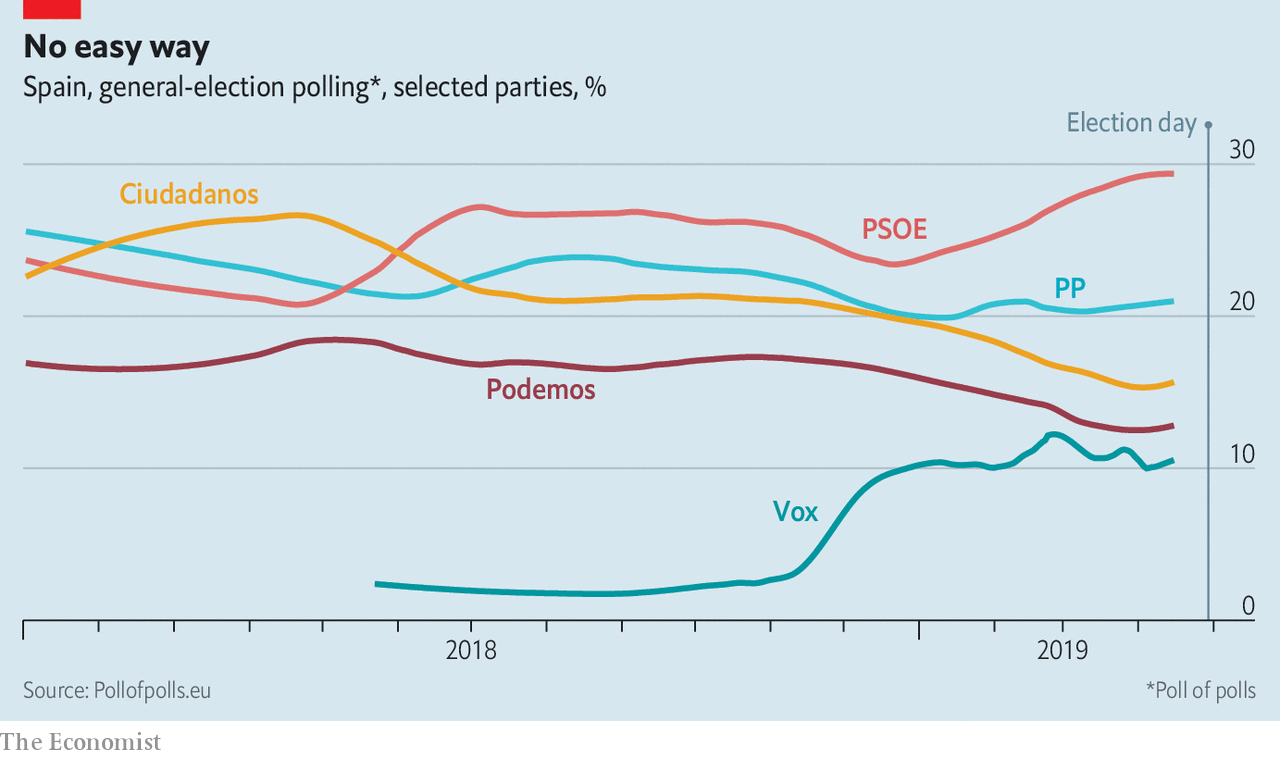
Heading nowhere?
More political paralysis will not serve Spain well
Voters should give the Socialists a governing majority—but almost certainly will not
Apr 17th 2019
When he failed in February to get his budget passed, Spain’s Socialist prime minister, Pedro Sánchez, had little choice but to call a snap election. His government, just eight months old, had surprised many by lasting as long as it did. With only 24% of the seats in parliament, but without coalition allies, its every move had been a tricky negotiation. As the country heads to the polls on April 28th, the signs are that the political paralysis which now grips Spain may only worsen. The Socialists look set to win the most seats, but the new parliament will contain five big parties, thanks to the arrival of the ultra-nationalist Vox (see article). None will have anything like a majority, so the options will be another short-lived minority government, an argumentative coalition or, most likely, fresh elections—the fourth in as many years.
The pattern is becoming familiar in Europe, where fed-up voters have abandoned the traditional parties of right and left (ask France’s Republicans, or Italy’s Democrats) and opted for a plethora of new groups, some on either extreme of the spectrum, others harder to pin down. Political fragmentation has caused protracted delays to the formation of governments in Germany, Italy, Sweden and Estonia in the past year or so. Finland this week looked likely to go the same way after its own inconclusive election. And when governments are eventually formed they tend to be weak, lowest-common-denominator affairs, further enhancing the popular distrust of established politicians; or else chaotic unions like the mixture in Italy of nationalist right and maverick left. France has been an exception, but even President Emmanuel Macron’s ratings have fallen sharply.
https://www.economist.com/leaders/2019/04/20/more-political-paralysis-will-not-serve-spain-well
Cap comentari:
Publica un comentari a l'entrada